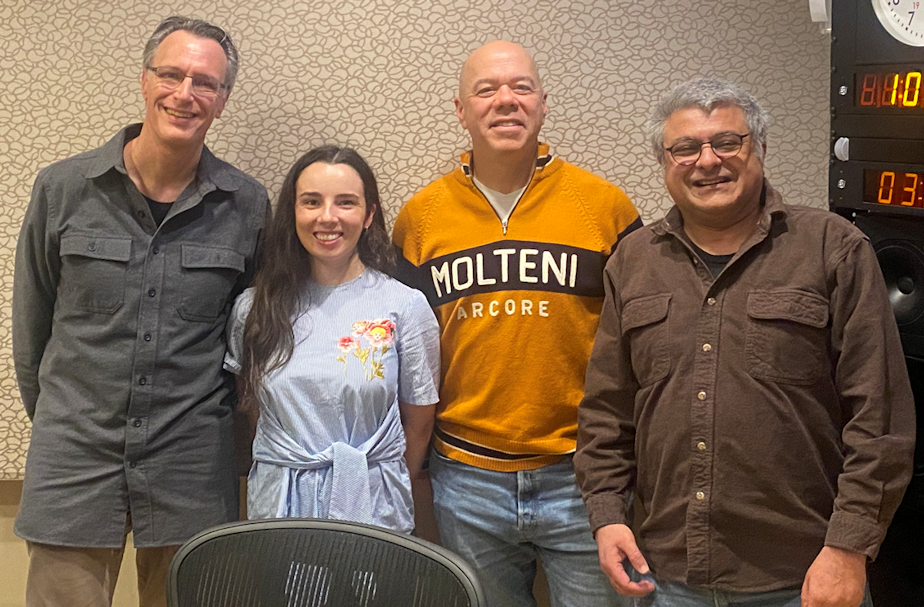Week in Review: density, endorsements, and NPR

Bill Radke discusses the week’s news with Insider’s Katherine Long, Geekwire’s Mike Lewis, and political and public affairs consultant Sandeep Kaushik.
Last week, we discussed a report that some Seattle planners wanted to densify faster than Mayor Harrell does. Our panelists all turned out to be pro-density. Several of our listeners expressed a desire for a different perspective. This week, we continue the density conversation. How big of an issue is density to you?
The Washington State Republican Party made its endorsement in the campaign for governor. And they did not endorse the candidate who's ahead in the polls and in fundraising, former Congressman and King County Sheriff Dave Reichert. Instead, the state Republican Party endorsed former Richland School Board member and self-described “constitutional Christian conservative" Semi Bird. Party leadership tried to disqualify Bird from the endorsement, saying it was because Bird admitted to The Seattle Times he committed bank larceny 30 years ago. But when delegates heard Bird was being disqualified, they shouted and booed and then overruled the party leadership. Reichert was in town, but he decided to skip the convention saying he doesn't need the party's endorsement. Is the Republican Party splintering?
On Week in Review, we consciously try to bring you differing viewpoints. But a lot of listeners find public radio too liberal and agree with former NPR senior business editor Uri Berliner who authored a column saying NPR has become too knee-jerk, too activist, and too scolding. What has the listener reaction been?
Seattle Public Schools is dropping its highly capable cohort, which used to be called other names like “accelerated learning” or “gifted.” They are phasing it out in favor of keeping students together in the same classroom. Teachers would make individualized learning plans for each student. This is because these programs tend to be made up of white and Asian students, and a public school system doesn't want to give extra advantages to those groups or segregate kids more. Having higher and lower performing students together might benefit the kids who most need to be around high performers and maybe benefit everyone by socializing them together. Would hiring more teachers solve the problem?
The Federal Trade Commission is banning non-compete clauses. These are agreements an employee signs when hired. After you leave employment, you can't work for a competing company or start a competing business for a certain amount of time. The ban applies to all future agreements and strikes down existing ones except those involving senior executives. Do these clauses protect intellectual property and trade secrets?


